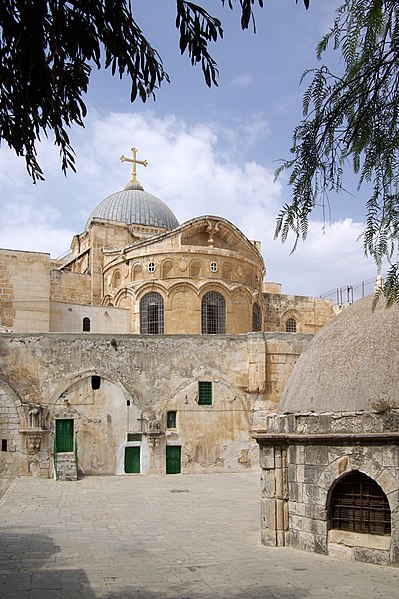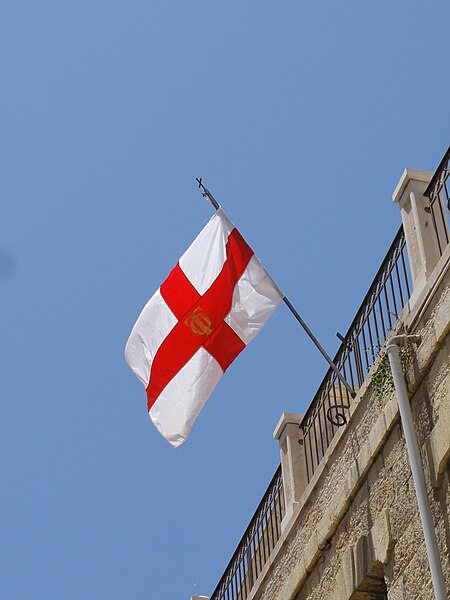Greek Orthodox Patriarchate of Jerusalem
The Greek Orthodox Patriarchate of Jerusalem, also known as the Greek Orthodox Church of Jerusalem, is an autocephalous church within the wider communion of Eastern Orthodox Christianity. Established in the mid-fifth century as one of the oldest patriarchates in Christendom, it is headquartered in the Church of the Holy Sepulchre in Jerusalem and led by the patriarch of Jerusalem, currently Theophilos III. The patriarchate's ecclesiastical jurisdiction includes roughly 200,000 to 500,000 Orthodox Christians across the Holy Land in Palestine, Jordan and Israel.
View of the Holy Sepulchre, East Jerusalem
James, brother of Jesus, first Bishop of Jerusalem
Priest of the Brotherhood of the Holy Sepulchre in Jerusalem.
Flag of the Patriarchate with the letters "ΤΦ" (Tau + Phi) representing the word "taphos" (tomb or sepulchre)
The Eastern Orthodox Church, officially the Orthodox Catholic Church, and also called the Greek Orthodox Church or simply the Orthodox Church, is the second-largest Christian church, with approximately 230 million baptised members. It operates as a communion of autocephalous churches, each governed by its bishops via local synods. The church has no central doctrinal or governmental authority analogous to the head of the Catholic Church. Nevertheless, the Ecumenical Patriarch of Constantinople is recognised by them as primus inter pares, a title formerly given to the patriarch of Rome. As one of the oldest surviving religious institutions in the world, the Eastern Orthodox Church has played an especially prominent role in the history and culture of Eastern and Southeastern Europe.
Saint George's Cathedral, Istanbul, Turkey
Christ Pantocrator, sixth century, Saint Catherine's Monastery, Sinai; the oldest known icon of Christ, in one of the oldest monasteries in the world.
Emperor Constantine presents a representation of the city of Constantinople as tribute to an enthroned Mary and baby Jesus in this church mosaic (Hagia Sophia, c. 1000).
An icon of Saint John the Baptist, 14th century, North Macedonia








